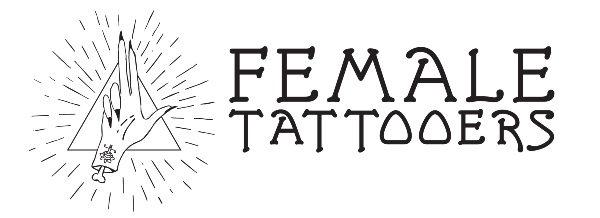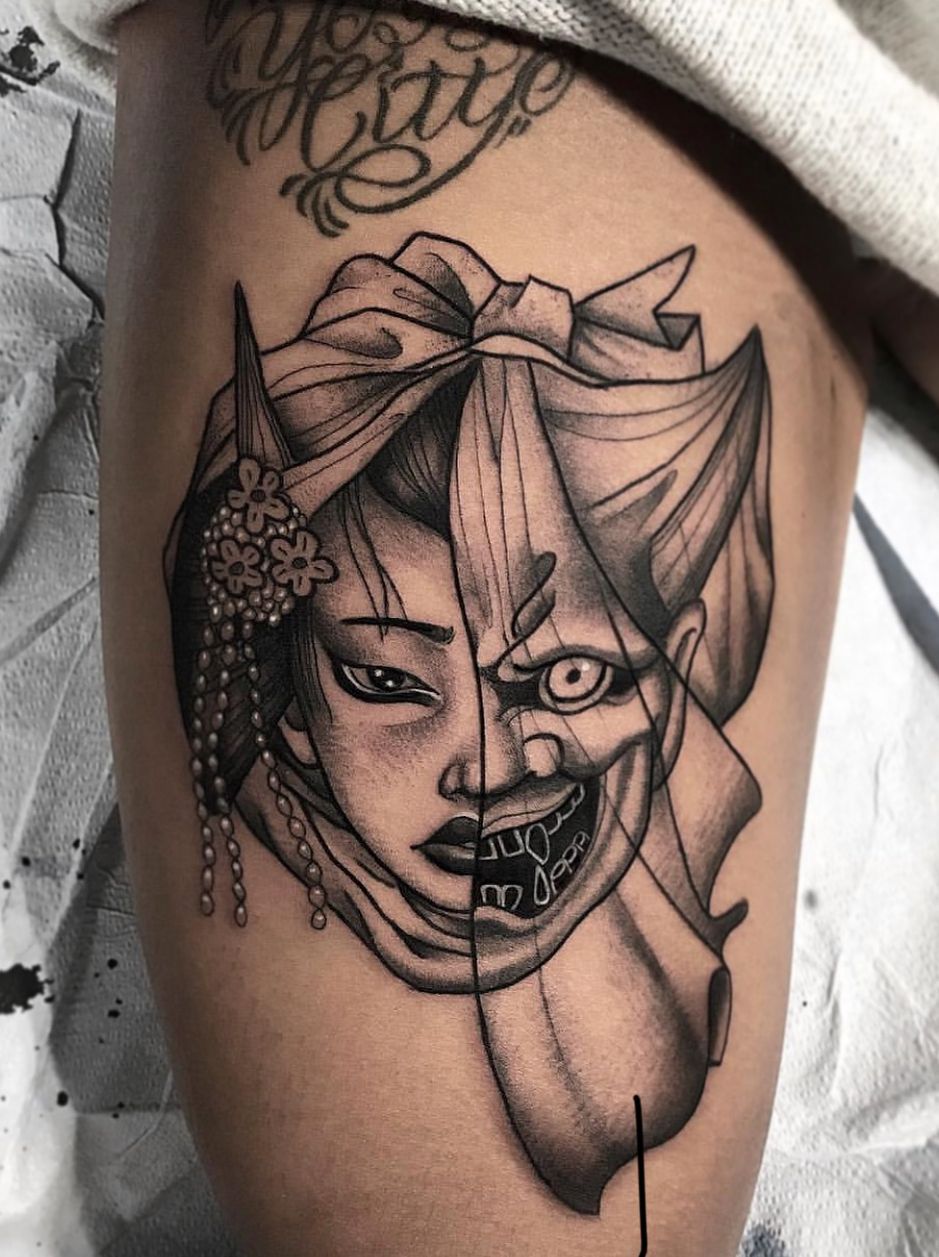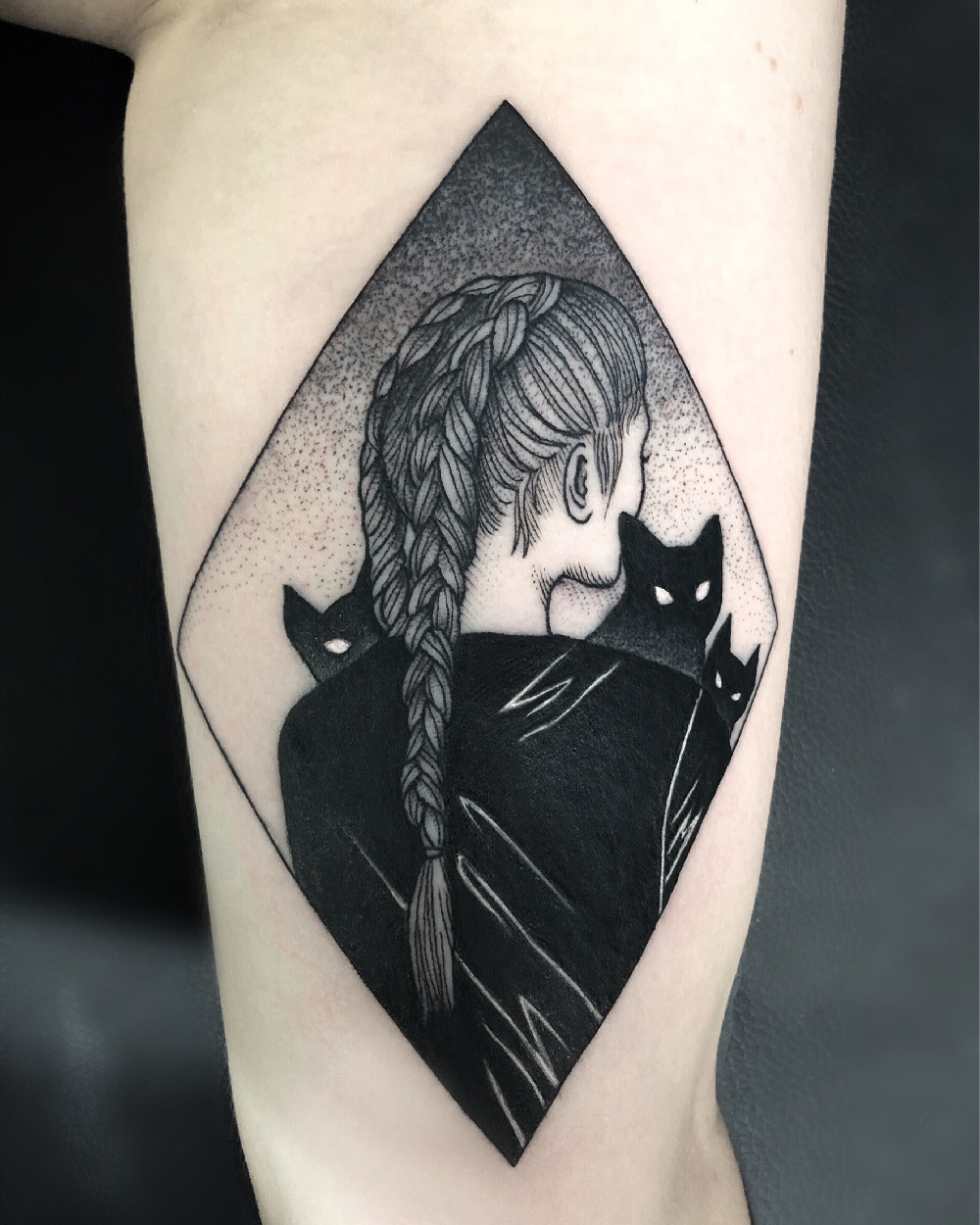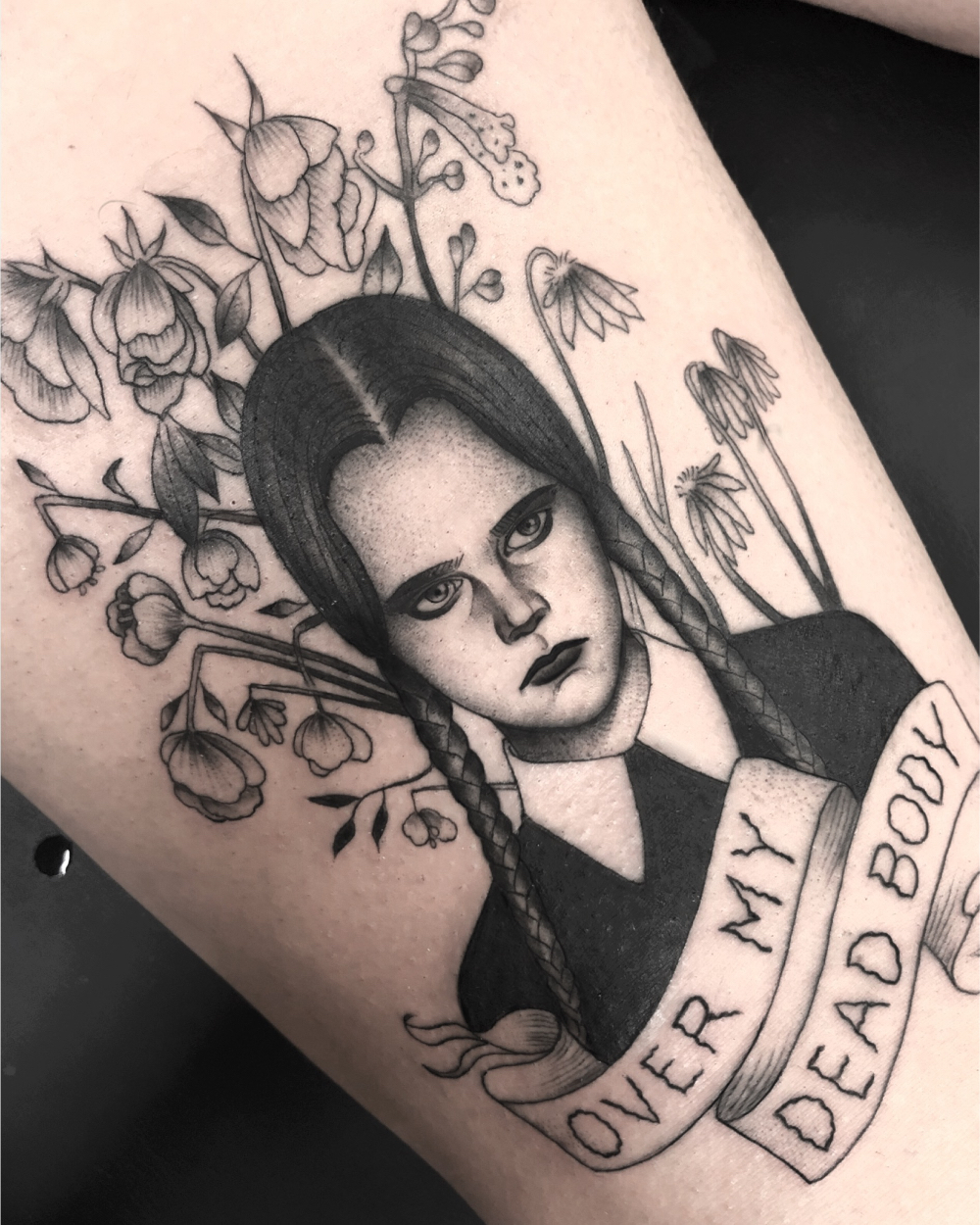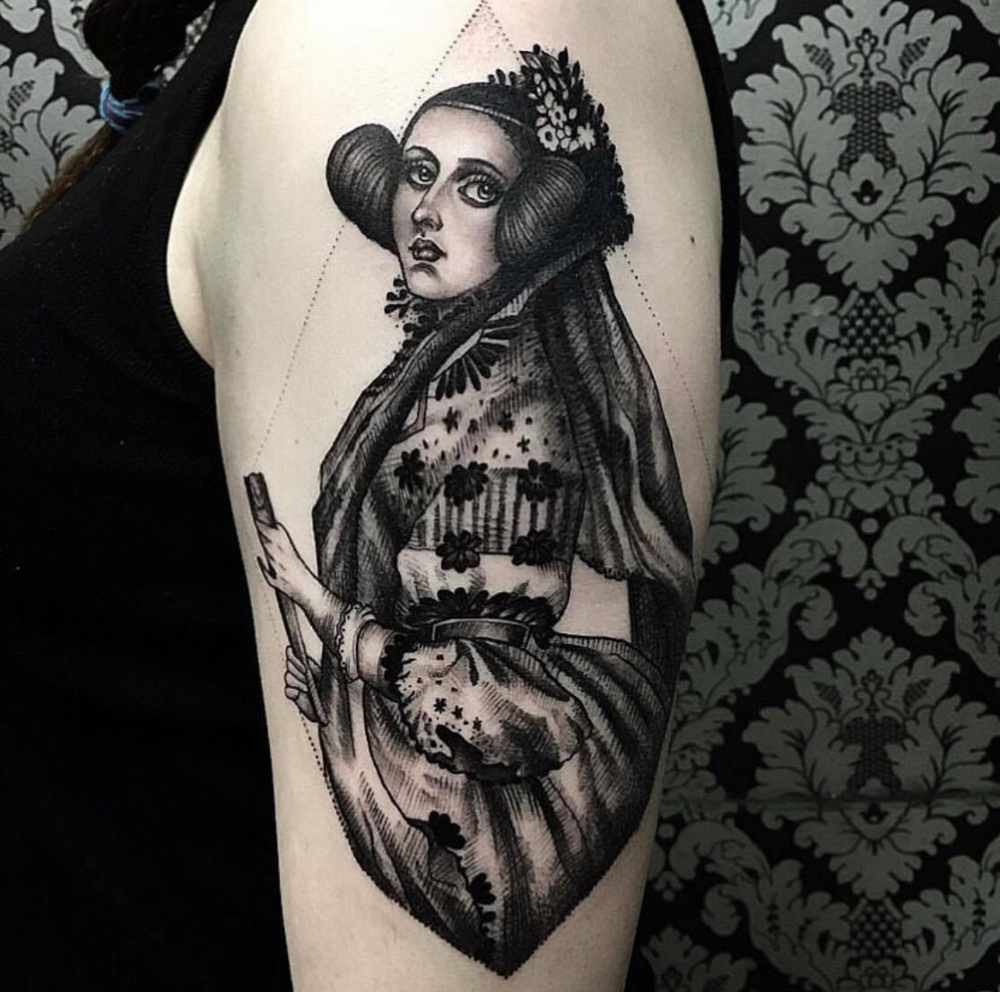Interview: Alisha Gory Talks Rebellion, Modeling, and Tattoos
When I meet tattooer Alisha Gory at the very glamorous Grit N Glory (owned by Megan Massacre) in Manhattan, the very first thing you notice about her is her extreme sweetness and kindness—and of course, her striking beauty.
Gory doesn’t hide her sexy attitude and has a passion for modelling on social media. But anyone familiar with Gory’s signature blackwork knows that there is more to this New York tattoo artist than her outward appearance.
It’s uncommon for South Korean women to be tattooed, especially as heavily as Gory. But as we sit down and talk about the industry and her tattoo career, it becomes obvious that she is fully comfortable breaking the rules. Gory is pushing boundaries—with her life, her body, and her art.
I asked her to tell me a little bit more about her beginnings in the tattoo industry, how she is developing her signature style, and rebelling against conservative norms.
FemaleTattooers: Tell me where you grew up. What’s your upbringing and what is the story behind your first tattoos?
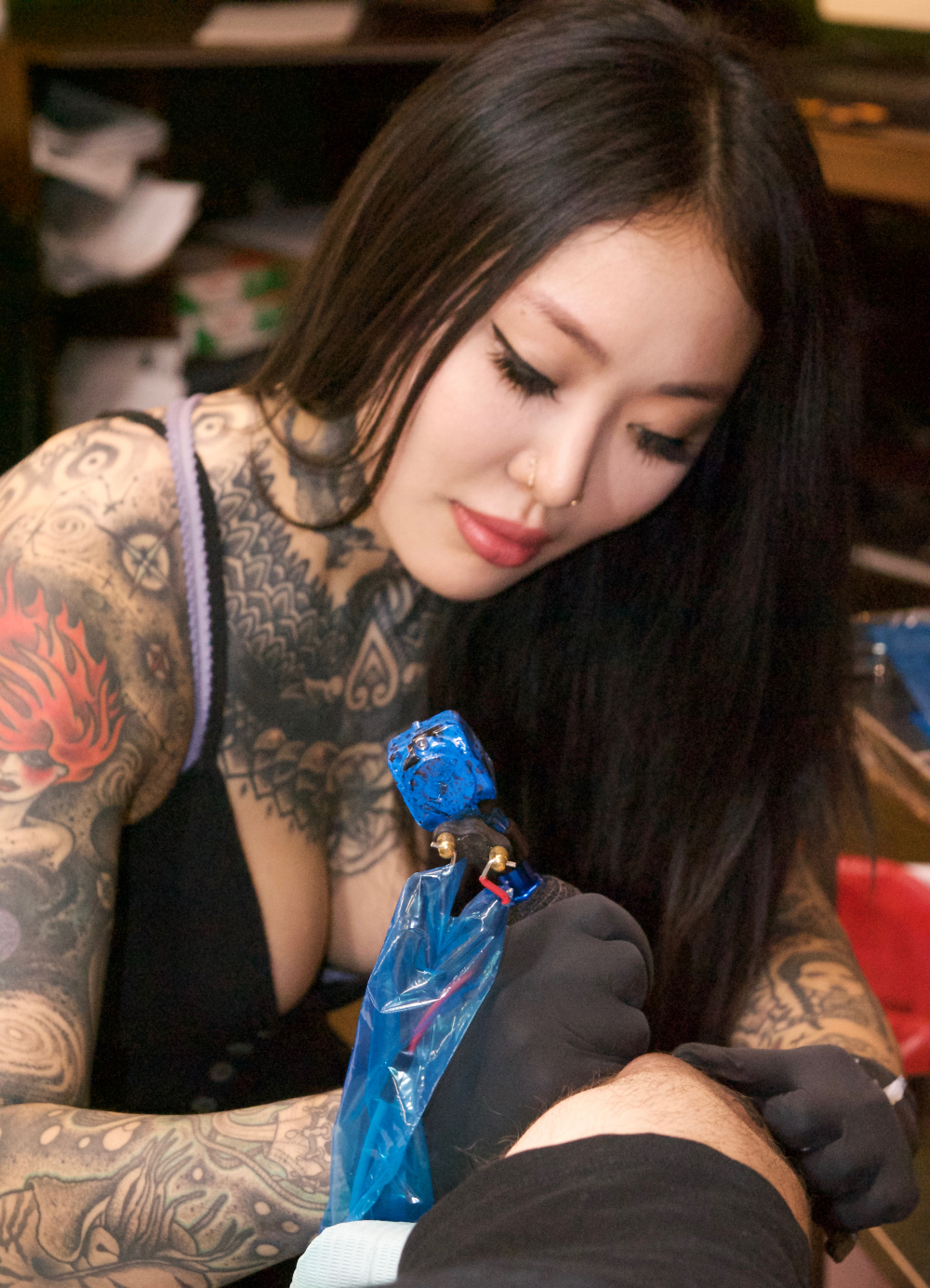
Alisha Gory: I grew up all over the world. At the age of one, I was already on a plane to a different country. I was originally born in Seoul, Korea but I never really spent my time there. That constant travelling and moving brought a lot of changes and cultural clashes in my life. It was quite a turbulent time for me growing up, but I’m glad I got to learn from all those experiences.
My first exposure to tattoos was some sort of tribal I saw on my friend’s back when I was 14. I remember thinking it was badass. Of course, I had no taste at all, because that was a tramp stamp.
I don’t have any stories to my tattoos at all. I got them because I just thought they were cool. Some of them were very impulsive. To be honest, I wish I planned them better. I guess it just shows how impulsive I can be. My favorite ones are the spider webs in my armpit that goes down to my ribs. It’s delicate and subtle but quite beautiful. I love that it flows with my body so well.
FT: When did you start tattooing? Was it an easy choice or a troubled one?
AG:I started tattooing right after college. I went to art school with a BFA degree and didn’t want to be a struggling artist. Little did I know, the life of an artist will always be a struggle in many forms! It wasn’t easy. Being a woman working among men—that always comes with a price. Especially when those men feel that they have power over you. But that’s in the past now, and the important thing is I got through it and I didn’t let it stop me from doing what I wanted to do.
FT: You are developing a nice smooth realistic black and grey and dark kind of style. Tell me how you started developing your own style and which direction it is going?
AG: I used to work with ink a lot before I was tattooing. But when I was in school, I did a lot of abstract art that was completely different than my ink drawing. So, I don’t know exactly where my inspirations came from. I think I was experimenting for a while to see what I like. I still am.
But I do love those old ink etching drawings and I find beauty in dark things. Perhaps it is because I want to shine light to my own darkness through art. I would like to start adding one or two color palettes with black and greys. I’m always trying to think of a new direction to head to. I find it boring to always do the same thing over and over.
FT: You are very much into modeling as well…and very good at it. Do you like to be considered an alternative mode
AG: No, I don’t really consider myself as a model. I think in today’s society, with social media and all, we are our own PR agent. I initially started modeling to promote myself as a person, and I wanted to give a face and a personality to my art. But there are many other reasons why I modeled.
Taking flattering photos is obviously driven by vanity—with today’s social media and all—but at the same time, it is a reminder to tell my insecurities to feel confident! I actually don’t enjoy being photographed. I had to really let go of myself and feel comfortable.
FT: Your passion for everything dark, gothic and heavy metal is evident. Tell us where it comes from and how that affects your style in tattooing.
AG: I’ve always loved something nonconventional. I think it comes from my rebellion against a very conservative South Korean society where everyone is expected to look the same and act the same. There really isn’t much diversity in South Korea.
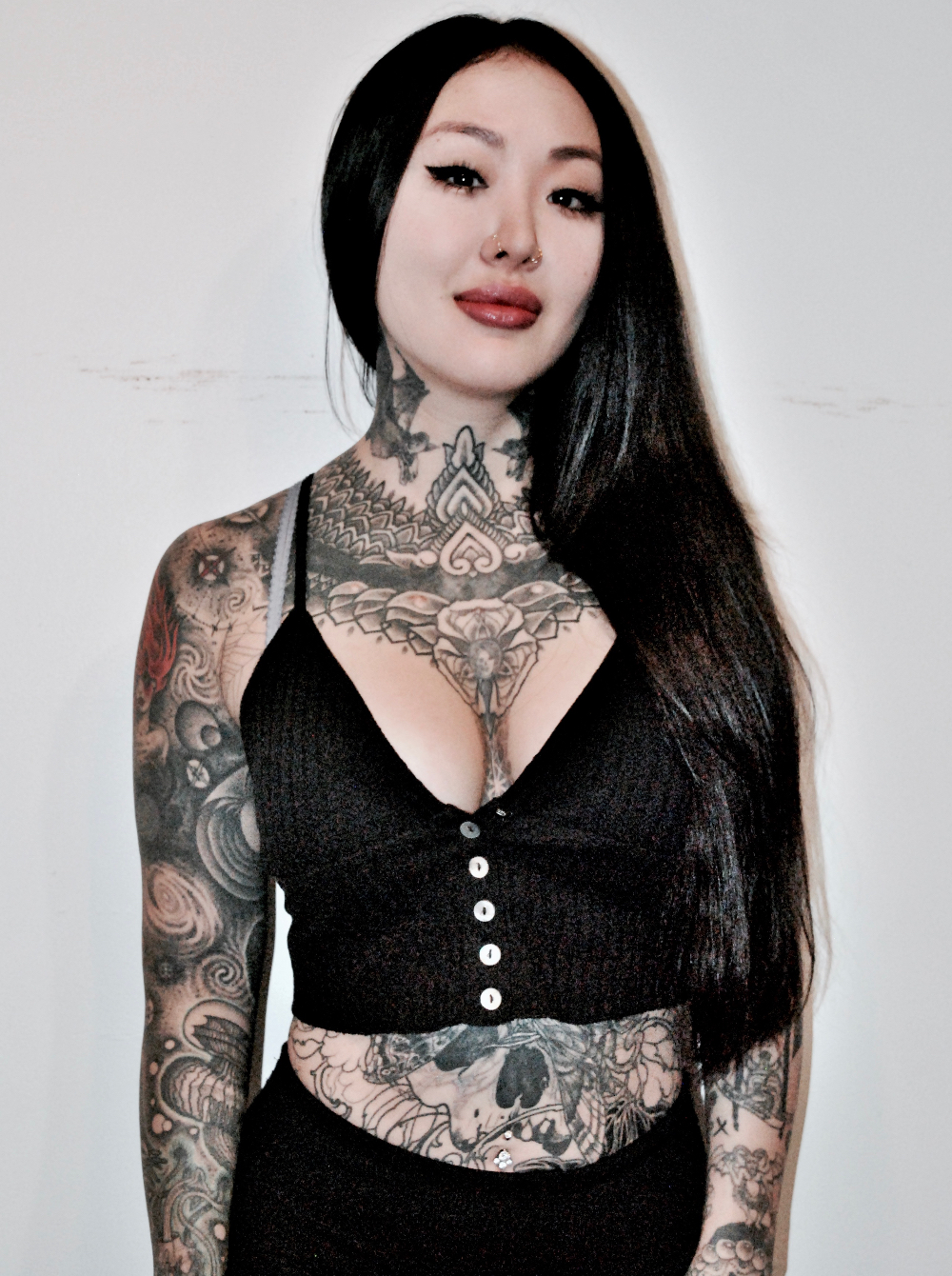
Dark music, dark art
FT: Who are your favorite artists? Who inspires you the most?
AG: My favorite artists consist of many genres of art. I don’t like to only limit myself to tattoo artists or even fine artists. Above all I love Roman Polanski and Aronofsky’s films, I love Albrecht Durer’s
FT: What are your favorite hobbies and things to do in your free time apart from tattooing?
AG
FT: What advice would you give to new women tattooers coming into this industry today?
AG:I think it is very important to stand up for yourself. Do not let people with power take anything away from you. Remember to have your eyes on the prize and keep moving forward. Don’t let others negative opinions sway your beliefs and ideals. Don’t give a damn about what other people think—but also listen carefully to those who are more experienced and learn from them. Express yourself and be you and do you—but do it with respect. Also, lastly, always stay humble and continue to grow!
Elvia Iannaccone Gezlev is a published tattoo and portrait photographer and a tattoo artist. This interview originally appeared in her book Ladies of Tattooing NYC. Photos courtesy Elvia Iannaccone Gezlev.
